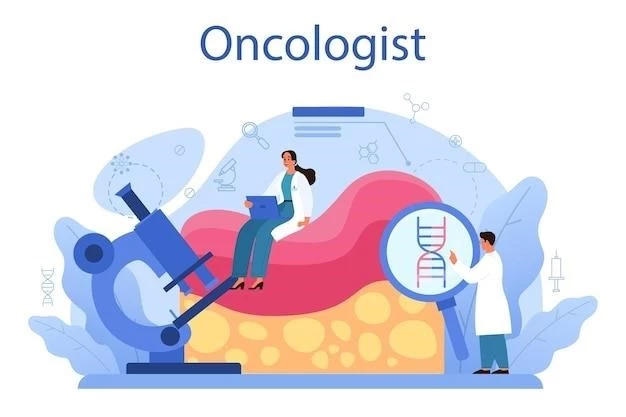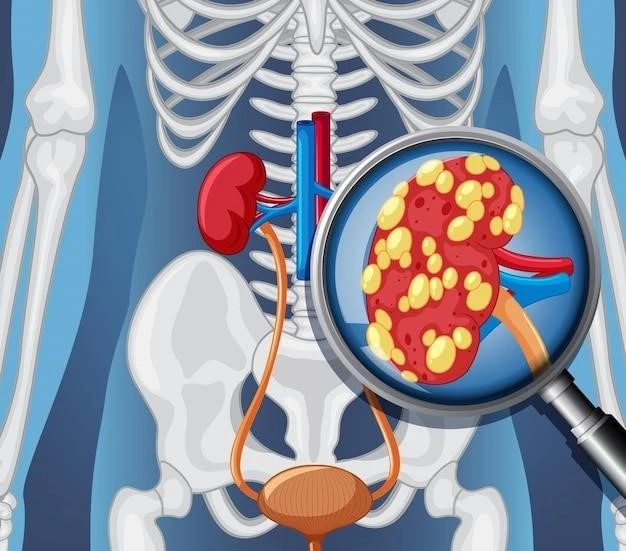Keratosis Palmoplantaris Esophageal Colon Cancer
Introduction
Keratosis palmoplantaris esophageal colon cancer is a rare genetic syndrome characterized by a combination of skin‚ esophageal‚ and colon manifestations. This condition presents with keratosis palmoplantaris‚ esophageal cancer‚ and colon cancer‚ posing challenges in diagnosis and management.
Individuals with this syndrome may experience varying degrees of skin changes on the palms and soles‚ as well as an increased risk of developing esophageal and colon cancers. This condition requires a multidisciplinary approach for effective treatment and surveillance.
Understanding the symptoms‚ risk factors‚ genetic implications‚ and therapeutic options associated with keratosis palmoplantaris esophageal colon cancer is essential for healthcare providers to deliver comprehensive care to affected individuals. This article explores the complexities of this disorder and its impact on patients’ overall health.
Symptoms and Diagnosis
The symptoms of keratosis palmoplantaris esophageal colon cancer can vary depending on the affected individual. Skin manifestations typically present as thickened‚ dry‚ and scaly patches on the palms and soles. Esophageal cancer may cause difficulty swallowing‚ chest pain‚ or unintended weight loss.
Colon cancer symptoms may include changes in bowel habits‚ blood in the stool‚ abdominal discomfort‚ and unexplained weight loss. Diagnosing this syndrome involves a thorough clinical evaluation‚ imaging studies such as endoscopy and colonoscopy‚ as well as genetic testing to confirm the presence of associated mutations.
Early diagnosis of keratosis palmoplantaris esophageal colon cancer is crucial for initiating appropriate treatment interventions and surveillance measures. Healthcare providers must be vigilant in identifying the signs and symptoms of this condition to improve patient outcomes and quality of life.
Risk Factors and Genetics
Keratosis palmoplantaris esophageal colon cancer has a genetic basis‚ with mutations in specific genes contributing to the development of this syndrome. Individuals with a family history of the condition are at an increased risk of inheriting the genetic mutations associated with keratosis palmoplantaris esophageal colon cancer.
The main genetic mutations linked to this syndrome affect genes involved in skin cell growth‚ esophageal tissue regulation‚ and colorectal cancer development. Understanding the genetic underpinnings of this disorder is crucial for targeted mutation analysis and risk assessment in at-risk individuals.
Other risk factors for keratosis palmoplantaris esophageal colon cancer may include environmental influences‚ lifestyle factors‚ and pre-existing medical conditions. Genetic counseling plays a vital role in identifying individuals who may be predisposed to this syndrome and providing them with information on risk management strategies.
Treatment and Management
The treatment and management of keratosis palmoplantaris esophageal colon cancer require a comprehensive approach tailored to the specific needs of each patient. Management strategies often involve a combination of surgical procedures‚ chemotherapy‚ radiation therapy‚ and targeted therapies.
Surgical interventions may be necessary to address skin manifestations‚ remove esophageal tumors‚ or resect colon cancer lesions. Chemotherapy and radiation therapy play crucial roles in targeting cancer cells and reducing tumor burden in affected individuals.
Targeted therapies‚ including medications that address specific genetic mutations associated with the syndrome‚ are being explored as potential treatment options. Close monitoring and follow-up care are essential components of managing keratosis palmoplantaris esophageal colon cancer to assess treatment effectiveness and detect disease recurrence.
Complications and Prognosis
Keratosis palmoplantaris esophageal colon cancer can lead to various complications due to the involvement of multiple organ systems. Complications may include skin infections‚ esophageal strictures‚ bowel obstructions‚ or metastatic spread of cancer to distant sites.
The prognosis for individuals with this syndrome depends on several factors‚ including the stage of cancer at diagnosis‚ response to treatment‚ and overall health status. Early detection and intervention can improve outcomes and quality of life for affected patients.
Despite the challenges posed by this complex syndrome‚ advancements in medical interventions and supportive care have contributed to better prognoses for some individuals. Research into novel treatment modalities and genetic therapies offers hope for improved outcomes and enhanced survival rates in the future.

Research and Case Studies
Ongoing research in the field of keratosis palmoplantaris esophageal colon cancer aims to elucidate the underlying mechanisms of this syndrome‚ identify novel treatment targets‚ and improve clinical outcomes for affected individuals. Case studies provide valuable insights into the varied presentations and management strategies used in real-world scenarios.
Genetic studies focusing on specific mutations associated with this syndrome are crucial for developing personalized therapies and genetic counseling approaches. By exploring the genetic landscape of keratosis palmoplantaris esophageal colon cancer‚ researchers can uncover new therapeutic avenues and prognostic markers.
Case reports documenting the experiences of patients with this syndrome contribute to the collective knowledge base‚ guiding healthcare providers in optimizing patient care and treatment plans. Collaborative efforts between researchers‚ clinicians‚ and patients are essential for advancing our understanding of this rare genetic condition and improving clinical outcomes.
Medical Interventions
Medical interventions for keratosis palmoplantaris esophageal colon cancer encompass a multidisciplinary approach involving various healthcare professionals. Surgical interventions play a crucial role in managing skin lesions‚ removing esophageal tumors‚ and treating colon cancer.
Chemotherapy is commonly used to target cancer cells‚ either as a standalone treatment or in combination with surgery and radiation therapy. Radiation therapy may be employed to shrink tumors‚ alleviate symptoms‚ or as an adjuvant to surgery.
Targeted therapies‚ including medications that target specific genetic mutations driving the syndrome‚ are a promising area of research for more personalized treatment options. Clinical trials and genetic testing may offer additional avenues for tailored medical interventions in individuals with keratosis palmoplantaris esophageal colon cancer.
Relationship with Skin and Digestive System
Keratosis palmoplantaris esophageal colon cancer manifests as a unique syndrome with manifestations in both the skin and the digestive system. Skin changes‚ such as thickening and scaling on the palms and soles‚ are characteristic features of the syndrome‚ serving as early indicators of the condition.
The involvement of the digestive system in keratosis palmoplantaris esophageal colon cancer presents challenges in diagnosis and management. Esophageal cancer may affect the function of the esophagus‚ leading to difficulties in swallowing and discomfort. Colon cancer can impact bowel habits and overall gastrointestinal health.
Understanding the intricate relationship between the skin and the digestive system in this syndrome is essential for healthcare providers to deliver holistic care to affected individuals. Coordinated efforts between dermatologists‚ gastroenterologists‚ and oncologists are necessary to address the diverse clinical manifestations of keratosis palmoplantaris esophageal colon cancer.
Syndrome and Genetic Counseling
Keratosis palmoplantaris esophageal colon cancer is a complex syndrome with implications for genetic counseling and risk assessment. Individuals with a family history of the syndrome or known genetic mutations associated with the condition may benefit from genetic counseling services.
Genetic counseling involves educating at-risk individuals about the inheritance patterns‚ genetic testing options‚ and implications of carrying specific mutations linked to keratosis palmoplantaris esophageal colon cancer. This process helps individuals make informed decisions about their health and screening recommendations.
Individuals considering genetic testing for the syndrome should have access to comprehensive information on the potential outcomes‚ implications for family members‚ and available support services. Genetic counselors play a crucial role in empowering individuals to navigate the complexities of hereditary conditions and make informed choices regarding their healthcare.
Conclusion
In conclusion‚ keratosis palmoplantaris esophageal colon cancer is a rare genetic syndrome that presents challenges in diagnosis‚ treatment‚ and management due to its multiple organ system manifestations. Understanding the genetic basis of the syndrome‚ its relationship with skin and digestive system issues‚ and the importance of genetic counseling are crucial for providing personalized care to affected individuals.
Ongoing research and case studies are essential for advancing our knowledge of this complex syndrome and improving clinical outcomes. Medical interventions‚ including surgery‚ chemotherapy‚ radiation therapy‚ and targeted therapies‚ play key roles in the multidisciplinary management of keratosis palmoplantaris esophageal colon cancer.
By recognizing the intricate relationship between skin and digestive system manifestations‚ healthcare providers can deliver comprehensive care to individuals with this syndrome. Genetic counseling serves as a vital tool in risk assessment‚ genetic testing‚ and empowering individuals to make informed decisions about their health and well-being.
Despite the complexities and challenges associated with keratosis palmoplantaris esophageal colon cancer‚ collaborative efforts between healthcare professionals‚ researchers‚ and patients offer hope for improved outcomes and advancements in treatment options. Continued research and genetic counseling will be instrumental in enhancing the care and quality of life of individuals impacted by this rare genetic syndrome.
